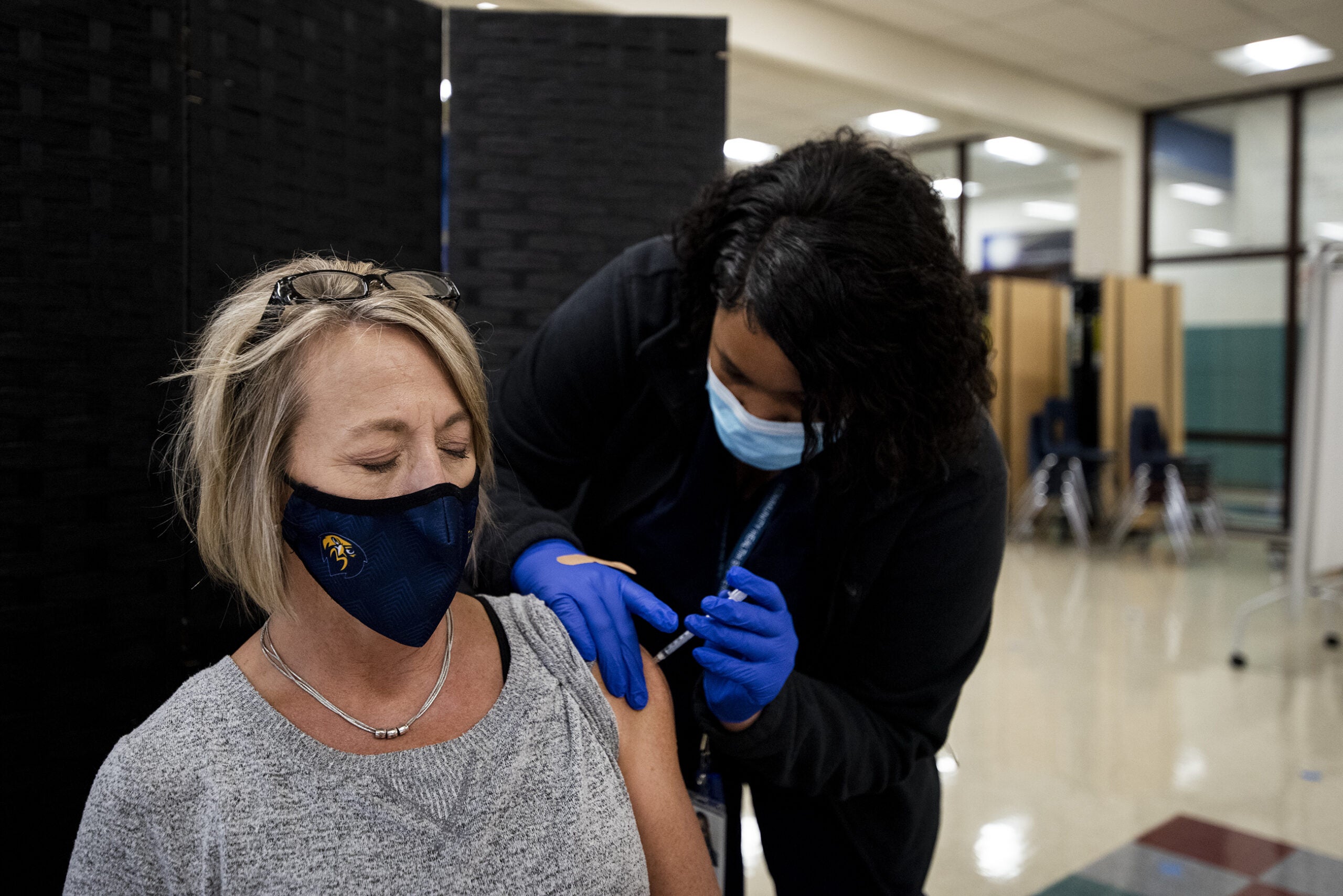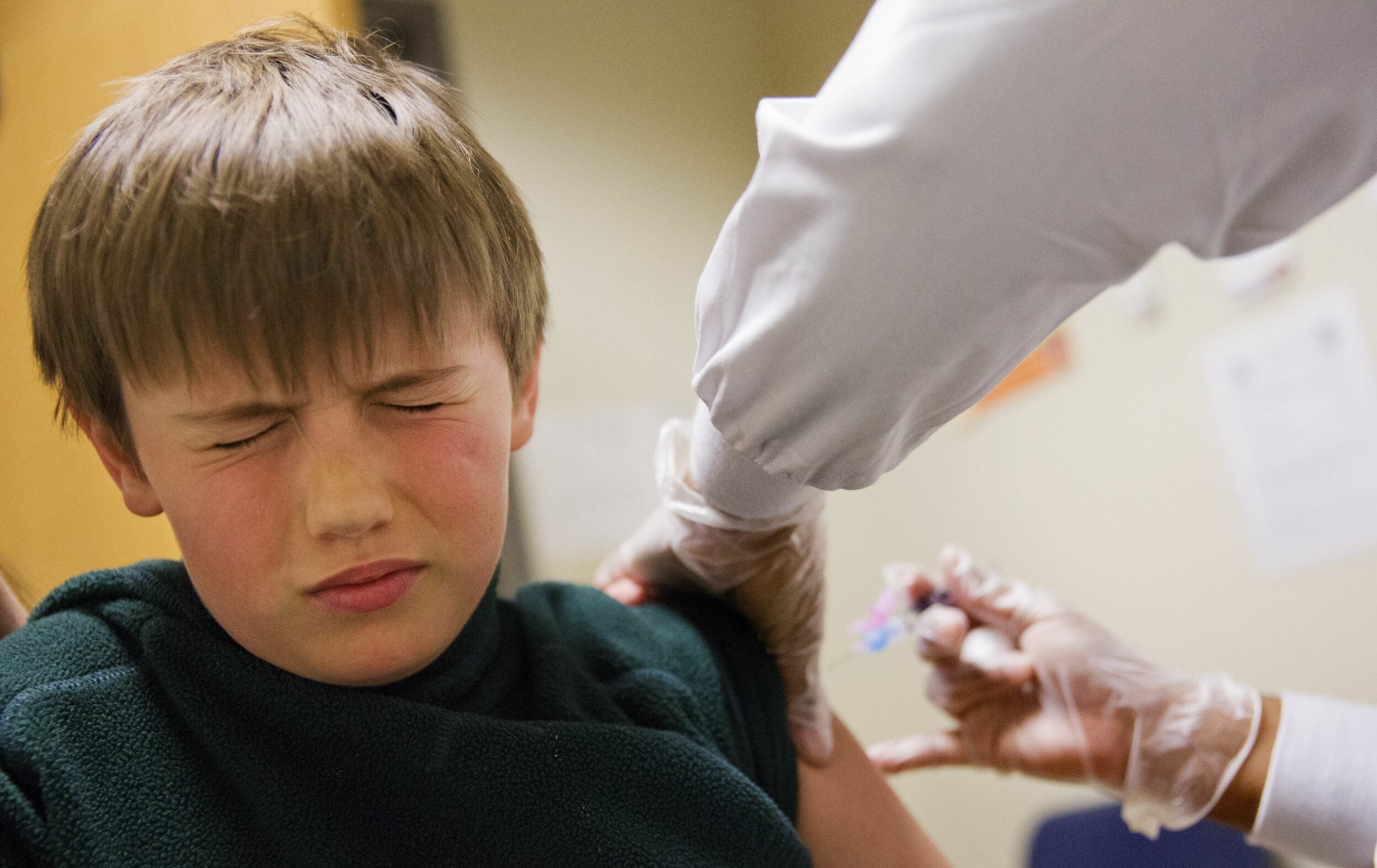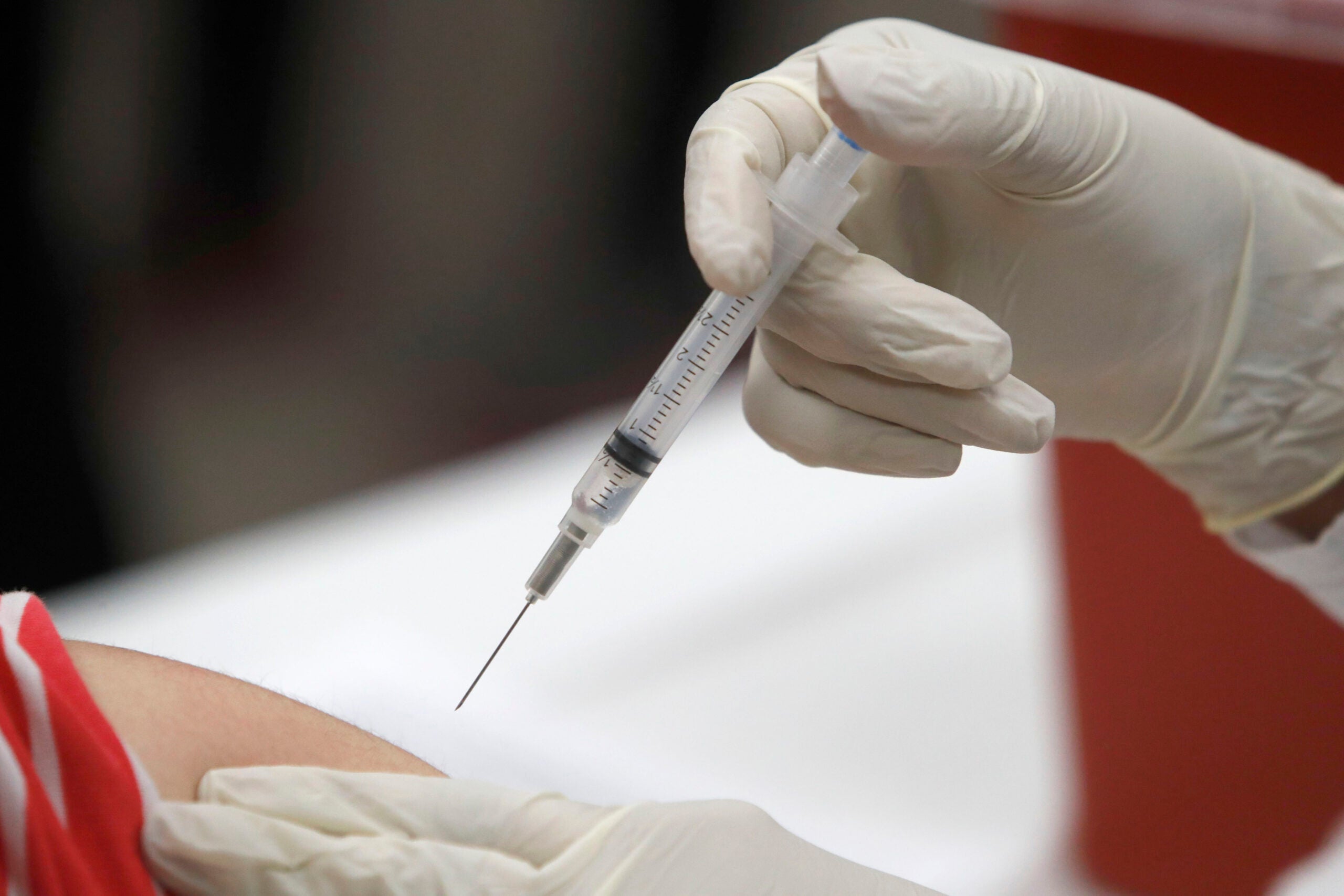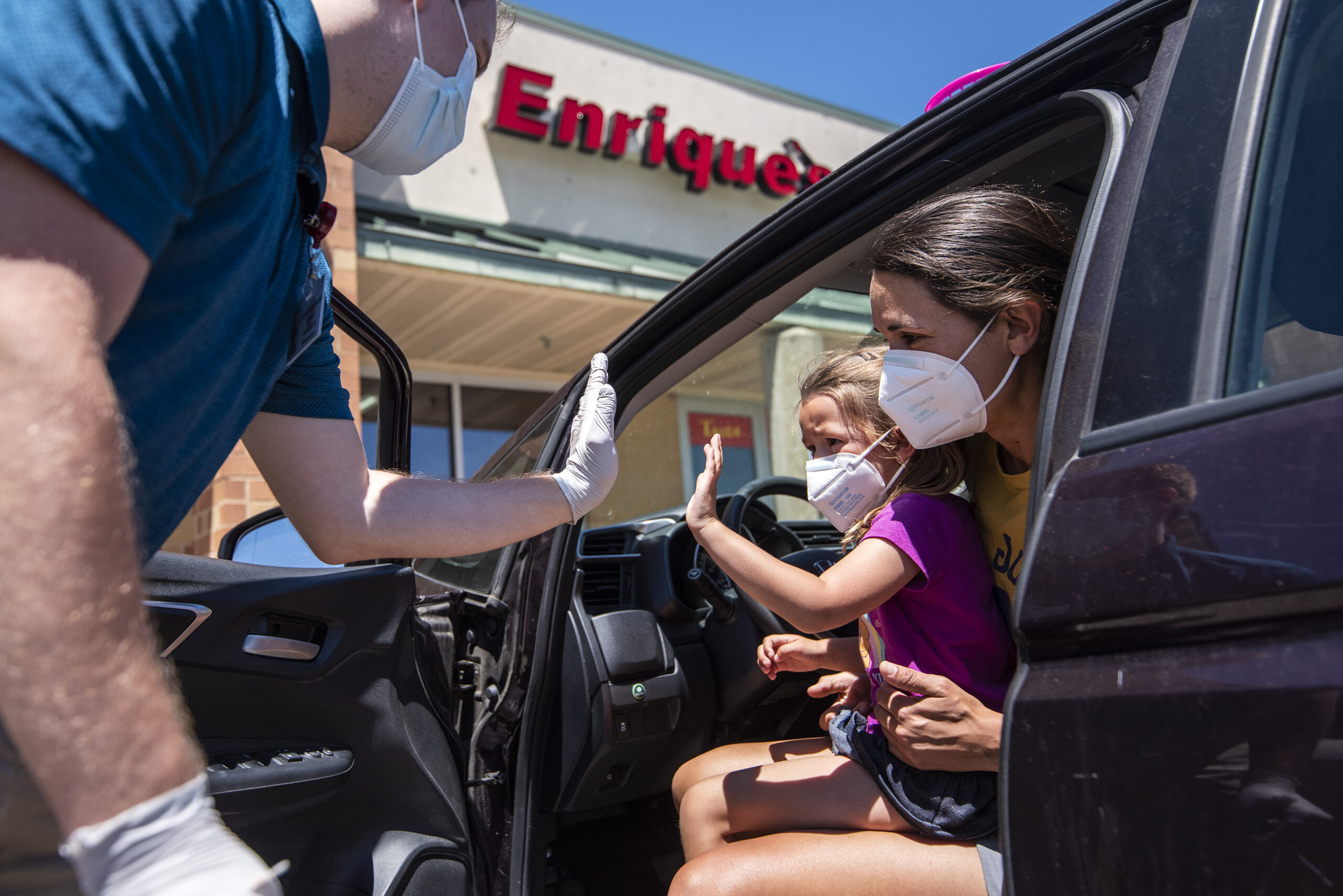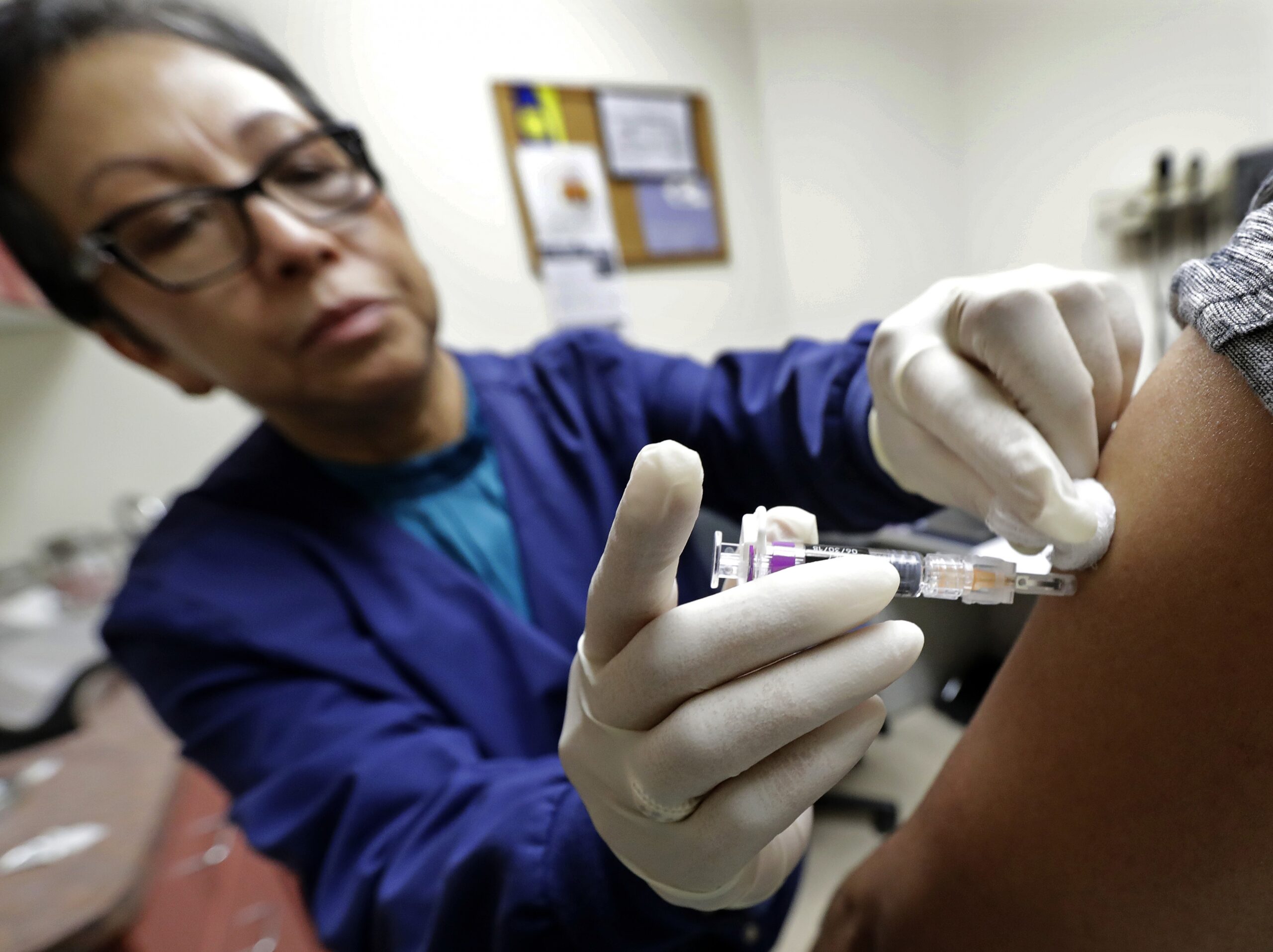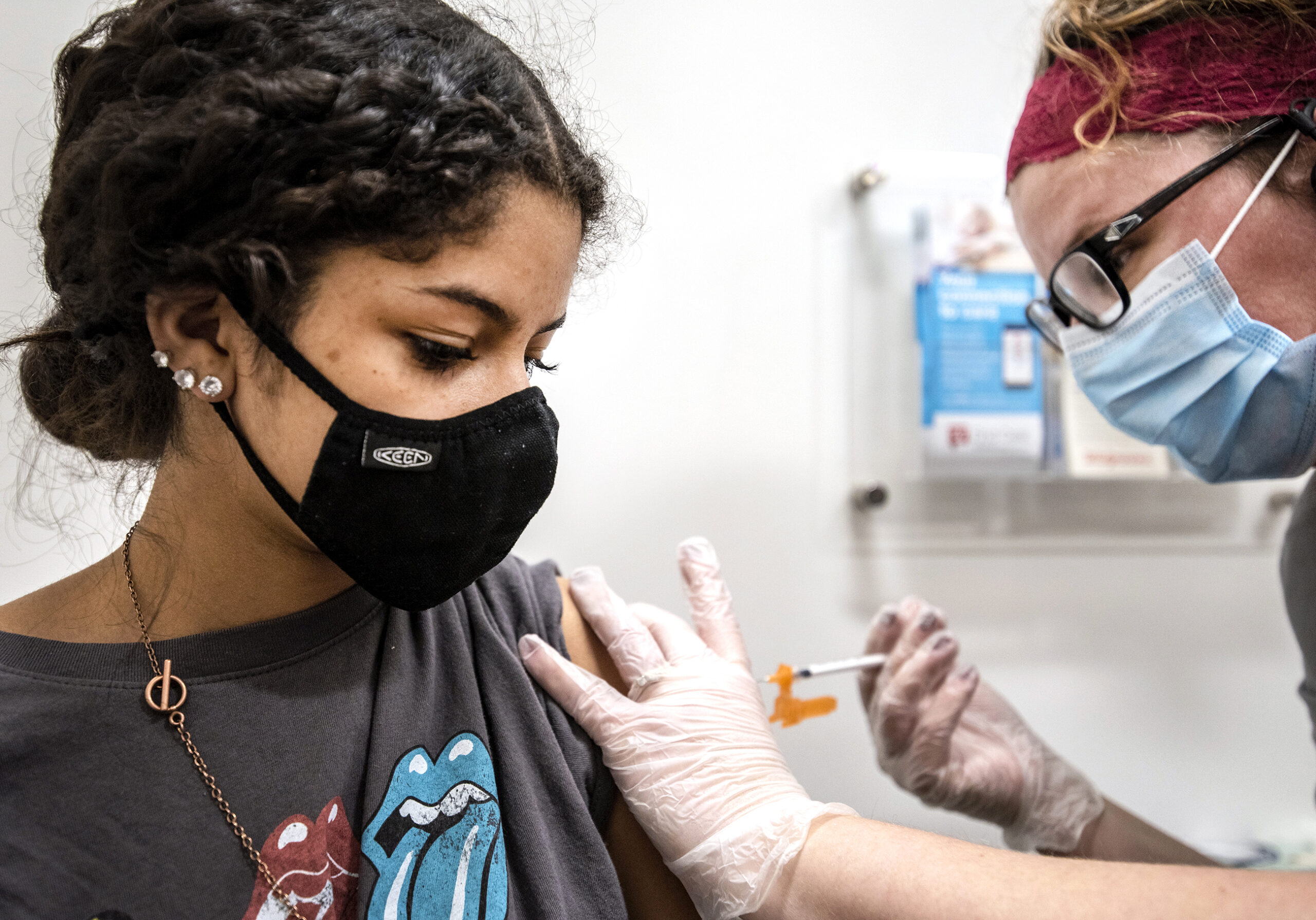Wisconsin health officials are urging residents to get an updated COVID-19 vaccine as the state sees an uptick in coronavirus activity.
The Centers for Disease Control and Prevention recommended on Tuesday that people ages 6 months and older get an updated COVID-19 booster.
The new vaccines from Pfizer-BioNTech and Moderna are a closer match to the version of the virus that is currently circulating than the original boosters. That’s why even people who have gotten previous vaccines or a COVID-19 infection are encouraged to get the new shot, according to Dr. Ryan Westergaard, chief medical officer of the state Department of Health Services Bureau of Communicable Diseases.
Stay informed on the latest news
Sign up for WPR’s email newsletter.
“The antibodies that I created when I got COVID in the summer of 2022 are targeted to a size and shape of a virus that’s different than the one that’s circulating now,” Westergaard said on a call with reporters on Wednesday. “So by reformulating, by updating the mRNA vaccines, the protection — the antibodies that people will generate in response to that vaccine — is much closer to the target of the viruses that are circulating in the world.”
He said the new COVID-19 vaccine recommendations are very similar to those for the influenza vaccine. And public health leaders are hoping people will make a plan to get both ahead of fall and winter, when the spread of respiratory illnesses tends to increase.
This year will be the first time that the federal government is not covering the cost of COVID-19 vaccines for all patients. But Westergaard said every person in Wisconsin should still be able to get the new booster free of charge.
“They are covered by insurance,” he said. “For people who do not have insurance, there are new government programs — one called the Bridge Access program, that ensures a pharmacy partner, that gets reimbursed from the federal government, can provide vaccines to people who don’t have insurance.”
Westergaard said DHS will share a list of participating pharmacies in the coming weeks and will also directly provide the boosters for kids without insurance through the state’s Vaccines for Children program.
DHS continues to report COVID-19 activity in the state through wastewater monitoring and hospitalization data.
The statewide average of coronavirus found in wastewater started increasing in mid-July and hit a peak at the end of August. Recently, 53 percent of monitoring sites had high levels of virus present in wastewater, while 23 percent of sites had very high levels.
Hospitalizations have also been growing in recent weeks, but continue to be at much lower levels than the first two years of the pandemic.
Westergaard said the bigger question facing public health officials is whether the increase will continue in coming months.
“The most likely scenario is that we will have comparable levels of symptomatic COVID-19 disease, hospitalizations, as we did in the last year,” Westergaard told reporters. “It’s of course difficult to predict. We may find new variants that emerge halfway through the respiratory virus season. But the models that have looked at what is likely or expected based on what we’ve observed in the past have led CDC to say that we should expect roughly similar levels of flu activity and COVID-19 activity.”
Last flu season, 38 percent of Wisconsin residents received a flu vaccine. The number of people getting the shot each year has fallen steadily from prior to the COVID-19 pandemic, when vaccination rates hit a record high of nearly 45 percent during the 2019-20 season.
Westergaard said public health experts are working to increase public confidence in vaccines by having consistent messaging from healthcare providers, government officials and other trusted sources. And he said people shouldn’t be afraid to ask questions about the shots.
“I love it when patients ask me questions,” he said. “If they’re skeptical about vaccines, if they’ve heard things that make them concerned that vaccines aren’t safe, I consider that my job. We spend time talking about what they’ve heard, what does it mean to them, and I do my best to communicate what I believe as a physician and what I understand to be supported by the best available science.”
He said the latest data shows that getting an updated booster has a clear benefit for those who are age 65 and older. He said the data is less clear for other age groups, but federal health experts are confident getting the vaccine will help prevent severe disease and could help prevent infected individuals from developing long-COVID symptoms.
This winter will also be the first season where a vaccine is available for respiratory syncytial virus, or RSV. The virus usually causes mild, cold-like symptoms, but it can be dangerous for young children and older adults. Last year, the virus caused a spike in hospitalizations among children in Wisconsin and across the U.S.
The Food and Drug Administration approved the vaccine for adults over 60 in May and last month, regulators approved the shot for people in their third trimester of pregnancy in order to protect their newborns.
Westergaard said people should talk to their medical provider to see if they’re eligible for the new RSV vaccines and learn more about other new treatments released this year to protect children from RSV this winter.
Wisconsin Public Radio, © Copyright 2025, Board of Regents of the University of Wisconsin System and Wisconsin Educational Communications Board.
